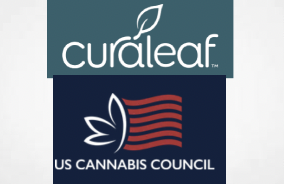Summary Provided By Perplexity
In the case Zanetich v. WalMart Stores East Inc, No. 23-1996, the Third Circuit Court addressed significant issues surrounding employment rights related to cannabis use under New Jersey’s Cannabis Regulatory, Enforcement Assistance, and Marketplace Modernization Act (CREAMMA).
Background
In 2022, Erick Zanetich applied for a position at Wal-Mart but had his job offer rescinded after testing positive for cannabis. He subsequently filed a lawsuit claiming that this action violated CREAMMA, which prohibits employers from denying employment based on cannabis use, and also contravened New Jersey public policy. Zanetich sought redress both individually and on behalf of a potential class of similarly affected applicants13.
Erick Zanetich’s main argument against Walmart centered on the assertion that the company’s decision to rescind his job offer due to a positive cannabis test violated New Jersey’s Cannabis Regulatory, Enforcement Assistance, and Marketplace Modernization Act (CREAMMA). Zanetich contended that CREAMMA prohibits employers from denying employment based on cannabis use, and he sought legal recourse for what he deemed employment discrimination stemming from his cannabis consumption125.Zanetich claimed that Walmart’s actions not only contradicted the protections outlined in CREAMMA but also violated public policy regarding employee rights related to cannabis use. He aimed to establish that the law should provide a private right of action for job applicants who face discrimination due to cannabis testing, despite the absence of explicit language in CREAMMA allowing such legal remedies345. Ultimately, both the district and appellate courts ruled against him, stating that CREAMMA does not confer a private right of action for job applicants denied employment based on cannabis use
How did Walmart’s legal team argue against Zanetich’s claims
Walmart’s legal team argued against Erick Zanetich’s claims primarily on two fronts:
- Lack of Implied Private Right of Action: Walmart contended that New Jersey’s Cannabis Regulatory, Enforcement Assistance, and Marketplace Modernization Act (CREAMMA) does not provide a private right of action for job applicants. They emphasized that the statute does not explicitly state that individuals can sue employers for discrimination based on cannabis use, and thus Zanetich’s interpretation was unfounded. The court agreed with Walmart, stating there was no evidence suggesting that state lawmakers intended to allow such claims under CREAMMA14.
- Regulatory Intent and Enforcement: Walmart argued that CREAMMA’s purpose is to regulate cannabis similarly to alcohol, and the enforcement of its provisions lies with the state regulatory commission rather than through private lawsuits. This position was reinforced by the assertion that the law was designed to protect employees from discrimination while also ensuring employers could maintain drug-free workplaces16. The legal team maintained that the district court correctly dismissed Zanetich’s claims based on this understanding of the law’s intent and scope28.
Overall, Walmart’s defense focused on the statutory interpretation of CREAMMA and the absence of a legal framework allowing job applicants to pursue claims for employment discrimination related to cannabis use.
Court Proceedings
Initially, the United States District Court for the District of New Jersey dismissed Zanetich’s complaint, ruling that CREAMMA does not provide a private right of action for job applicants who fail drug tests. The court concluded that the statute does not confer special benefits to applicants and indicated no legislative intent to allow private remedies for such violations. Furthermore, it held that New Jersey’s public policy exception to at-will employment does not extend to job applicants, only applying to employees who have been wrongfully terminated134.Zanetich appealed this decision to the Third Circuit, which affirmed the lower court’s ruling. The appellate court applied a modified version of the Cort test to determine whether CREAMMA implied a private right of action. The court found no evidence supporting that the statute was intended to benefit job applicants or that it would be consistent with the statute’s purposes to imply such a remedy37.
Key Findings
- No Private Right of Action: The Third Circuit ruled that CREAMMA does not imply a private remedy for job applicants denied employment due to cannabis use.
- Public Policy Exception: The court clarified that New Jersey’s public policy exception does not apply to failure-to-hire claims, as it has traditionally been limited to wrongful termination cases.
- Dissenting Opinion: Judge Freeman dissented, suggesting that the matter should be presented to the New Jersey Supreme Court for further consideration37.
Implications
This ruling reinforces the ability of employers in New Jersey to rescind job offers based on pre-employment drug tests for cannabis use, reflecting ongoing legal complexities surrounding cannabis regulation and employment rights in states where cannabis is legalized
The court’s decision in Zanetich v. WalMart significantly impacted the interpretation of New Jersey’s Cannabis Regulatory, Enforcement Assistance, and Marketplace Modernization Act (CREAMMA) by clarifying the limitations of the law regarding employment discrimination claims.
Key Impacts of the Decision
- No Private Right of Action: The Third Circuit ruled that CREAMMA does not grant job applicants the right to sue employers for rescinding job offers based on positive cannabis drug tests. This interpretation emphasizes that the law lacks explicit language providing a private remedy for individuals who believe they have been discriminated against due to cannabis use45.
- Legislative Intent: The court found no legislative intent within CREAMMA to allow for such claims. It highlighted that while CREAMMA aims to protect both cannabis users and non-users, it does not confer specific benefits or rights to job applicants who test positive for cannabis56. The court noted that the absence of an express remedy suggests a deliberate choice by lawmakers rather than an oversight5.
- Public Policy Exception Rejected: Additionally, the court rejected Zanetich’s claims based on New Jersey’s public policy exception to at-will employment, further solidifying employers’ rights to make hiring decisions without legal repercussions related to cannabis use45.
- Regulatory Authority: The ruling reinforced that enforcement of employment protections under CREAMMA is primarily the responsibility of regulatory bodies rather than through individual lawsuits. The court indicated that alternative enforcement mechanisms exist within the framework established by CREAMMA itself45.
Overall, this decision delineates the boundaries of CREAMMA, indicating that while it provides certain protections regarding cannabis use, it does not extend those protections to job applicants in a manner that allows for private legal action against employers. This interpretation may influence future cases and legislative discussions surrounding cannabis-related employment issues in New Jersey.
zanetich-v-wal-mart-stores-east-inc-et-al-dismissal-order
Sup.-Materials.-Zanetich-v.-Wal-Mart.-Dec-2024-v.1


















